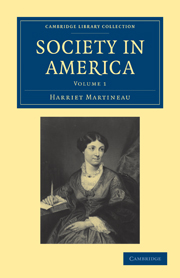CHAPTER II - APPARATUS OF GOVERNMENT
Published online by Cambridge University Press: 05 July 2011
Summary
“The true foundation of republican government is the equal right of every citizen, in his person and property, and in their management. Try by this, as a tally, every provision of our constitution, and see if it hangs directly on the will of the people.”
Jefferson.Though it be true that the principles of government are to be deduced more from experience of human nature than experience of human governments, the institutions in which those principles are to be embodied must be infinitely modified by preceding circumstances. Bentham must have forgotten this when he offered, at sixty-four, to codify for several of the United States, and also for Russia. He proposed to introduce a new set of terms. These could not, from his want of local knowledge, have been very specific; and if general, what was society to do till the lawyers had done arguing?
How could even a Solomon legislate, three thousand miles off, for a republic like that of Connecticut, which set out with taking its morals and politics by handfuls, out of Numbers and Deuteronomy? or for Virginia, rank with feudal prejudices and methods? or for Delaware, with its monarchical martyr spirit? or for Louisiana, compounded of Spain, France, and America? Though at the time of the framing of the constitution, the States bore a strong general resemblance in their forms of government, endless minor differences existed, mainly arising from the different tenure on which they had been held under the English crown.
- Type
- Chapter
- Information
- Society in America , pp. 42 - 109Publisher: Cambridge University PressPrint publication year: 2009First published in: 1837



